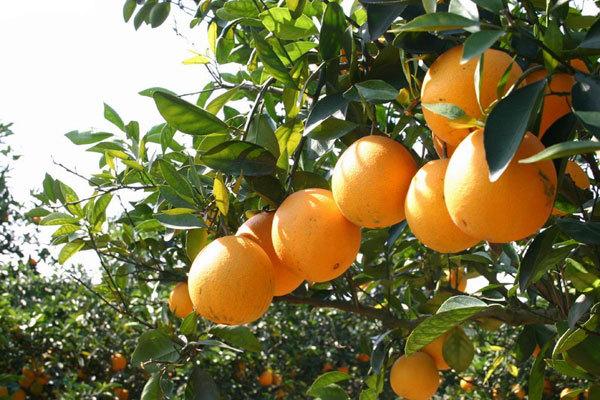
Walk into our grove on a warm afternoon, and the first thing you notice isn’t the fruit—it’s the smell. Not just citrus, but something richer: damp earth after rain, sun-warmed leaves, the faint honeyed scent of blossoms still clinging to branches. This is the perfume of our home, a mix of soil, sweat, and time. We’re not here to grow “perfect” oranges. We’re here to grow oranges that remember where they came from—and to share that memory with you.
My First Lesson: The Language of the Trees
I learned to listen to orange trees before I could read. At six, I’d follow my dad into the grove, trailing his shadow as he checked each trunk. “Feel this,” he’d say, pressing my palm to the bark. “Rough? That means it’s thirsty. Smooth? Happy.” He taught me to read leaves: curled edges meant heat stress, yellow spots needed more compost, and a shiny, deep green? Pure joy.
One summer, a drought hit. We rationed water, carrying buckets to the youngest trees while the older ones—those planted by my grandfather—held steady, their roots digging deep into soil we’d spent years enriching with kitchen scraps and cover crops. “See?” Dad said, wiping sweat from his brow. “They remember the rain, even when it’s gone.” That day, I understood: these trees weren’t just crops. They were family, with stories in their rings and resilience in their roots.
Work That Tastes Like Sunshine
Farming here is slow, intentional, and alive.
Spring is for blooming. We don’t rush it. We let the trees flower when they’re ready—usually late March, when nights still dip below freezing but days glow warm. Bees arrive like clockwork, drawn by wildflowers we plant along the rows—clover, daisies, even a patch of milkweed for the monarchs. “They’re not just pollinators,” my mom laughs. “They’re our first quality check. If the bees love it, the oranges will too.”
Summer is for care. We weed by hand, not with herbicides—because the clover feeds the soil, and the dandelions attract ladybugs. We thin fruit, leaving only the strongest clusters, because overcrowded branches grow small, bitter oranges. “Better fewer, better,” my grandma used to say, as she tucked a stray leaf back around a baby orange.
Fall is for harvest. We start at dawn, when the oranges are cool but the sun’s already kissing their skins. Workers move like shadows—no clattering ladders, no dropped fruit. Rosa, who’s picked here for 25 years, cradles each orange like a baby bird. “They know when you’re gentle,” she says. “Sweetest ones come from careful hands.”
Imperfections: The Best Part of the Story
Not every orange is picture-perfect. Some have a nick from a branch, others are lopsided, their tops a little flat. For years, we’d toss them—or sell them cheap. Then my daughter, Lina, then 7, brought one to me, her face scrunched. “This one’s sad,” she said. “But it tastes good, right?”
Right. So now, we call them “memory oranges.” They go to the food bank, where a single dad told us, “My kid eats these like candy—their ‘ugly’ oranges are the best.” They go to the high school art class, where students paint them, calling them “nature’s canvases.” And sometimes, we leave them in the field—for the possums, the rabbits, the little creatures who’ve watched us tend this land for decades.
What You’ll Carry Home: More Than Fruit
When you hold one of our oranges, I hope you feel the weight of this place. The sun that baked its skin golden. The rain that plumped its segments. The hands that picked it gently, the bees that pollinated it, the possums that kept the weeds in check.
Bite in, and taste the story. First, the bright tang—like a squeeze of morning lemonade, but warmer, softer. Then, the sweetness unfolds, slow and rich, like honey steeped in summer. The juice runs, thick and golden, not watery. Peel it, and the skin comes away cleanly, leaving no bitter pith—just a faint, citrusy scent that lingers, like a memory you don’t want to forget.
Come, Smell the Story
If you’re ever nearby, pull up a stool under the old oak. We’ll share sweet tea, hand you a crate, and let you pick your own. I’ll show you the tree my dad planted the day I was born—its trunk thick, its branches still heavy with fruit. Rosa will teach you to test ripeness by smell: “If it smells like sunshine, it’s ready.” And my mom? She’ll say, “Take extra. These oranges taste better when you share them.”
If you’re far away, we’ll pack your order with straw and care—no plastic, no rush. These oranges aren’t perfect. They’re not mass-made. They’re grown by people who show up, day in and day out, for the land, for the fruit, and for anyone who believes food should taste like it’s rooted in love.
So go ahead. Peel one. Let the juice drip. And taste the scents, the sweat, and the stories that made it possible.
Our grove is here. And it’s waiting to share its fragrance with you.
Article link:https://www.vlefooena.com/the-grove-where-scents-tell-stories-growing-navel-oranges-with-our-hands-and-hearts-2

No reply content